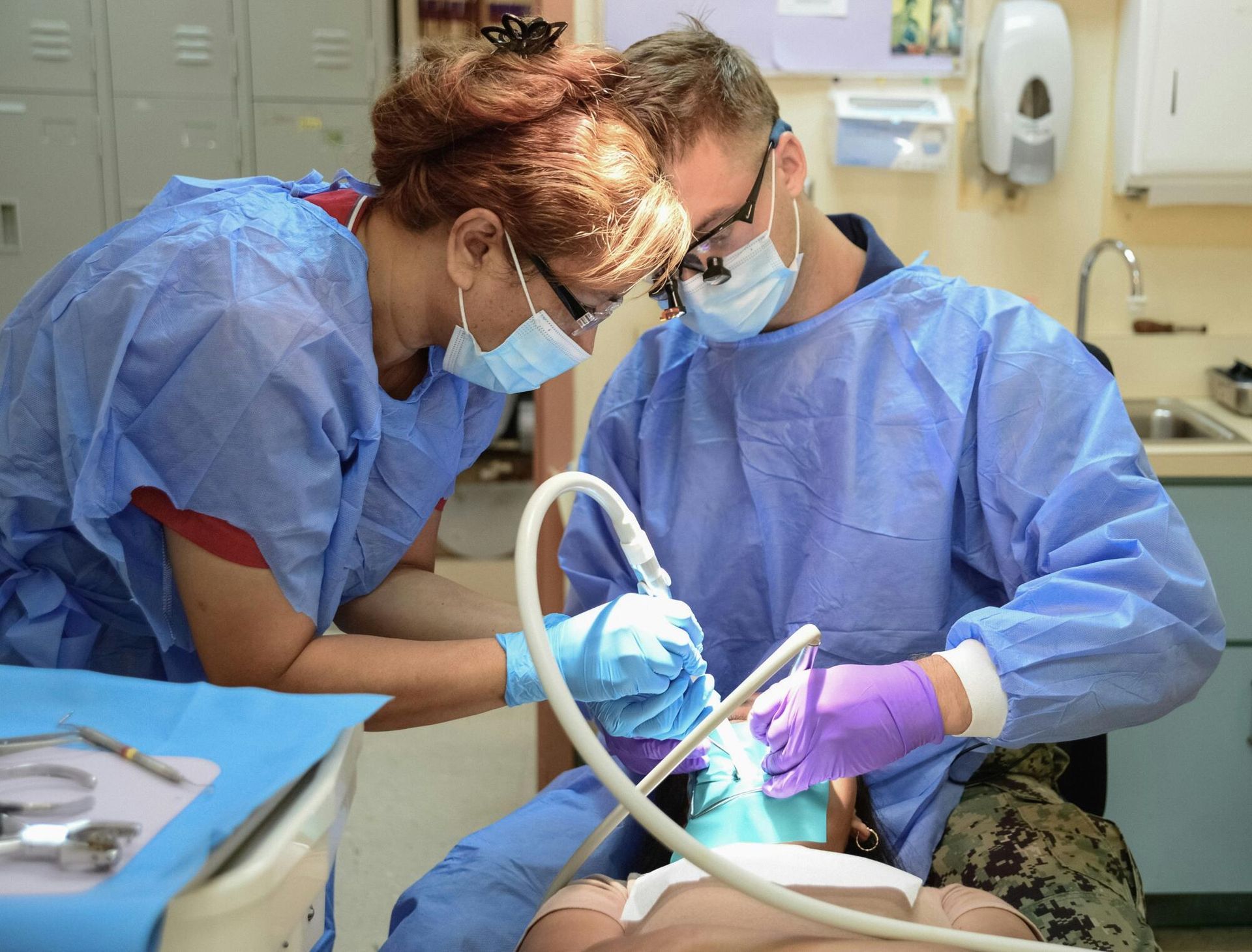TMJ Disorders: Worth The Worry?

Is jaw pain keeping you up at night? Do you struggle to focus throughout the day due to constant headaches? If so, you may be suffering from TMJ disorder.
Over
10 to 35 million people in the United States struggle with TMJ disorder. If you suspect you might be one of them, keep reading to discover more about TMJ disorder.
What Is TMJ Disorder?
TMJ is short for the temporomandibular joints. These are the joints and jaw muscles responsible for your ability to open and close your mouth. TMJ dysfunction disorder is when anything in this group of muscles, ligaments, and bones isn't functioning properly.
Symptoms
Several common symptoms occur when an individual has TMJ disorder. TMJ disorder symptoms can be very painful and, while not life-threatening, can affect your quality of life.
Chronic Jaw Pain
One of the telltale symptoms of TMJ disorder is jaw pain. This may occur in the form of clicking or popping when you move your jaw, pain in your cheeks, or pain near your ears and temples.
Pain levels can vary from discomfort to severe. When left untreated, jaw pain often becomes a chronic issue.
Headaches
The TMJ connects your jaw to your skull and the pain in your jaw muscles often leads to headaches. The headaches associated with TMJ are like tension headaches and are usually reoccurring.
Inflammation
When the muscles in your jaw aren't as they should be, they become strained, resulting in inflammation. Without treatment, you may suffer from continued inflammation and swelling.
Sleep Problems
If you're experiencing sleep problems, it can be a symptom of TMJ disorder. TMJ disorder is one of the causes of sleep apnea, a sleep disorder that occurs when your airway is obstructed as you sleep. TMJ problems contribute to sleep apnea because the incorrect alignment in your jaw may have your tongue positioned in a way that blocks your airway.
How Long Does It Last?
Acute TMJ flare-ups can last anywhere from a few days to a few weeks. Chronic sufferers might experience regular instances of dull to sharp pains over longer lengths of time, even years in some cases.
Causes
Wondering what causes TMJ disorder? Many things can contribute to issues with your TMJ.
Genetics
TMJ disorder can be a hereditary condition passed on through our genetics. Genetics determine the shape of our mouth and jaw, as well as the size and position of our teeth. If these factors affect our jaw alignment, they can make someone more susceptible to developing TMJ disorder.
Stress
Stress is a common cause of TMJ problems. When we feel stressed or anxious, we clench our jaw or grind our teeth and have tenser muscles overall. Repeated occurrences of these actions can result in problems with our teeth and jaw.
An Unaligned Jaw
An unaligned jaw is the most common cause of TMJ disorder. An overbite, underbite, crooked teeth, or too many teeth may contribute to an unaligned jaw.
Teeth Grinding
Teeth grinding, also known as Bruxism, is both a cause and symptom of TMJ disorder. Regular teeth grinding can lead to problems in your teeth that can cause problems with your jaw. Those struggling with TMJ problems often grind their teeth in their sleep due to jaw pain.
Diagnosis
If you have any symptoms of TMJ disorder, your doctor or dentist will often examine your jaw to determine if it's the cause. During the examination, they will listen for any sounds as you open and close your jaw, observe your range of motion, and check the locations of any pain.
They may also perform an x-ray, MRI, or CT scan to examine your teeth, jaw, bones, and joints.
Treatment
TMJ disorder treatment is often necessary to prevent chronic pain and improve daily life. Your doctor may recommend a variety of treatment options, some of which can be done in conjunction with one another.
Find TMJ disorder treatment in Virginia.
Medication
Medications can be an effective way to treat the pain associated with TMJ issues and are often prescribed with other treatment options. Some medications for TMJ disorder are:
- Pain relievers
- Anti-Inflammatories
- Muscle relaxants
- Tricyclic antidepressants
- Steroids
Discuss your options with your doctor to decide which medication will work best for you.
Therapy
There are several therapy options that can improve the function of your jaw, or eliminate other factors that lead to TMJ flare-ups. Options include:
- Physical therapy
- Dental splints
- Botox
- Behavior counseling
- Acupuncture
The success of these therapy options depends on the severity of your condition, so it's always recommended to discuss your options with a professional.
Surgery
When your TMJ disorder is severe or other methods don't work, surgery is the next option to consider. There are a variety of surgical options to consider:
- Open-joint surgery
- Arthroscopy
- Condylotomy or mandible surgery
- Arthrocentesis to reduce inflammatory byproducts
The right surgical procedure for you will vary depending on the cause of your TMJ problems.
Alignment
If a misalignment in your jaw is the culprit of your TMJ disorder, ask your dentist about alignment options. By aligning your bite, you can reduce headaches, clenching, grinding, and sleep problems associated with TMJ disorder.
Tips to Reduce TMJ Symptoms
When you're experiencing a TMJ flare-up, there are several tips that help reduce symptoms:
- Eat softer foods
- Practice meditation to ease stress
- Use heating pads or ice packs
- Avoid chewing gum
- Don't bite your nails
Identifying flare-ups and using these tips will alleviate pain to make them more manageable.
Seek Help For Your TMJ Disorder
If you suffer from chronic jaw pain and aren't sure of the cause, it's possible you may be suffering from TMJ disorder. TMJ problems are treatable and seeking help for them will improve your quality of life.
At
Dental Care Burke, our experienced professionals will address your TMJ problems with knowledge and care. Schedule your TMJ consultation today.












